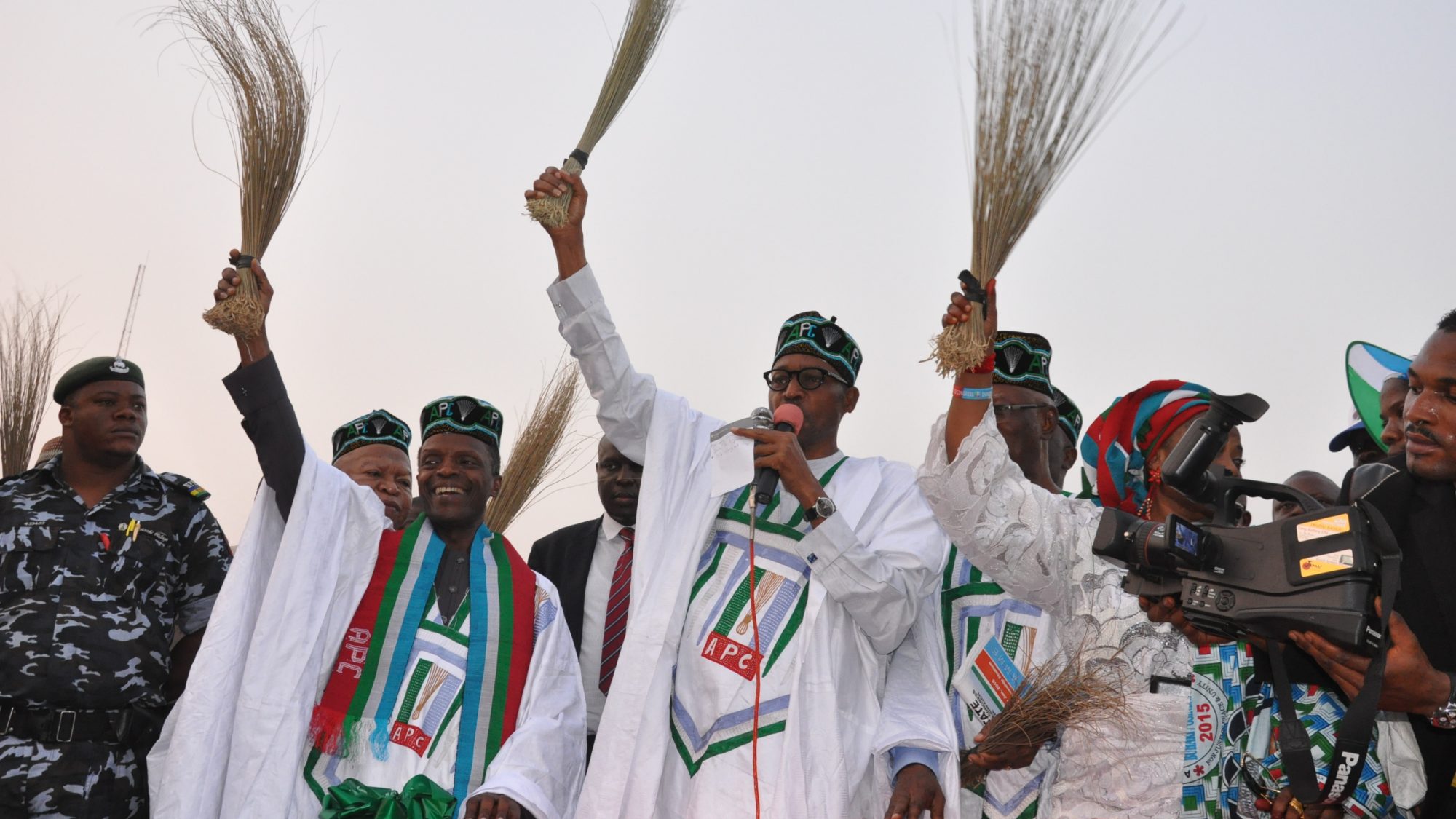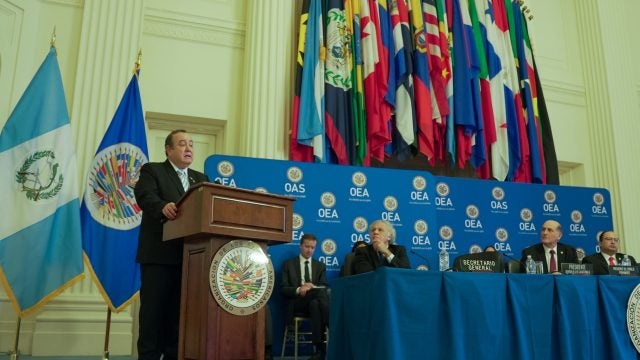
Title: The Failure of Governance in Nigeria: An Epistocratic Challenge
The failure of governance in Nigeria manifests in the declining capacity of political leaders to recognize systemic risks such as election fraud, terrorist attacks, herder-farmer conflict, armed banditry, and police brutality and put in place the necessary measures to navigate these challenges. In contrast with the current system in which leadership is attained through bribery, intimidation, and violence, Nigeria needs an epistocratic system of governance that is founded on the pedigree of its political leaders and the education of its voters.
At the end of the Cold War, African civil society movements striving for more democratic governance began to challenge authoritarian regimes on the continent. Declining living conditions within African countries and the failure of authoritarian African leaders to deliver the promises of economic prosperity they made to encourage the acceptance of development aid fueled the push for change. International donors’ insistence on democratic reform as a precondition for aid gave impetus for Nigerian civil society to push for domestic accountability. Thus, domestic pressure for political pluralism and external pressure for representative governance have both played a role in the calls for democratic reform in Nigeria.
But despite some successes, corruption and socioeconomic disparities within Nigerian democracy continue to run rampant. Since 1999, the democratic space has been dominated by political elites who consistently violate fundamental principles associated with a liberal democratic system, such as competitive elections, the rule of law, political freedom, and respect for human rights. The outcome of the 2019 presidential election further eroded public trust in the ability of the independent electoral commission to organize competitive elections unfettered by the authoritarian influences of the ruling class. This challenge is an indicator of the systemic failure in Nigeria’s governance system. A continuation of the current system will only accelerate the erosion of public trust and democratic institutions. In contrast with the current system in which votes are attained through empty promises, bribery, voter intimidation, and violence, Nigeria needs a governance system that will enhance the education of its voters and the capability of its leaders.
Statistically speaking, Nigeria has consistently ranked low in the World Governance Index in areas such as government effectiveness, political stability and the presence of violence and terrorism, rule of law, and control of corruption. Nigeria is perceived in the 2020 Transparency International Corruption Perception Index as a highly corrupt country with a score of 25/100 while its corruption ranking increased from 146 in 2019 to 149 in 2020 out of 180 countries surveyed. While President Muhammadu Buhari won the 2015 election on his promise to fight insecurity and corruption, his promises went unfulfilled; Boko Haram continues to unleash unspeakable violence on civilians while the fight against corruption is counterproductive.
At the core of Nigeria’s systemic failure is the crisis of governance, which manifests in the declining capacity of the state to cope with a range of internal political and social upheavals. There is an expectation for political leaders to recognize systemic risks such as terrorist attacks, herder-farmer conflict, and police brutality and put in place the necessary infrastructure to gather relevant data for problem solving. But the insufficiency of political savvy required to navigate the challenges that Nigeria faces has unleashed unrest across the nation and exacerbated existing tensions. The #ENDSARS Protests against police brutality in 2020 is one of the manifestations of bad governance.
The spiral of violence in northern Nigeria in which armed bandits engage in deadly planned attacks on communities, leading to widespread population displacement, has become another grave security challenge that has sharpened regional polarization. Because some public servants are usually unaware of the insecurities faced by ordinary Nigerians, they lack the frame of reference to make laws that address the priorities of citizens. The crisis of governance is accentuated by a democratic culture that accords less importance to the knowledge and competence that political leaders can bring to public office. These systemic challenges have bred an atmosphere of cynicism and mistrust between citizens and political leaders at all levels of government.
Political elites in Nigeria also exploit poverty and illiteracy to mobilize voters with food items such as rice, seasoning, and money. The rice is usually packaged strategically with the image of political candidates and the parties they represent. The assumption is that people are more likely to vote for a politician who influences them with food than one who only brings messages of hope. The practice of using food to mobilize voters is commonly described as “stomach infrastructure” politics. The term “stomach infrastructure” arose from the 2015 election in Ekiti state when gubernatorial candidate Ayodele Fayosi mobilized voters with food items and defeated his opponent Kayode Fayemi. It is undeniable that Nigerian political culture rewards incompetent leaders over reform-minded leaders who demonstrate the intellectualism and problem-solving capabilities needed to adequately address systemic issues of poverty and inequality.
Jason Brennan describes the practice of incentivizing people to be irrational and ignorant with their votes as the unintended consequence of democracy. Brennan believes specific expertise is required to tackle socio-economic issues, so political power should be apportioned based on expert knowledge. As Brennan suggests, Nigeria lacks a system of governance in which leadership is based on capability. Rather, the political system in Nigeria is dominated by individuals who gain power through nepotism rather than competence, influence voters with food rather than vision, and consolidate power through intimidation or by incentivizing constituents with material gifts which they frame as “empowerment” to keep them subservient and loyal political followers. By implication, the failure of governance in Nigeria is arguably the result of incompetent leadership.
Nigeria needs a new model of governance in which political leadership is based on the knowledge and competence of both political leaders and the electorate. One solution is to establish what Brennan refers to as epistocracy, which is a system of governance in which the votes of politically informed citizens should count more than the less informed. For Justin Klocksiem, epistocracy represents a political system in which political power rests exclusively on highly educated citizens. This idea drew its philosophical influence from John Stuart Mill, who believed that the eligibility to vote should be accorded to individuals who satisfy certain educational criteria. The notion that educational attainment should be the prerequisite for the electorate to choose their leaders as proposed by Brennan, Klocksiem, and Mill is an important proposition that should be taken seriously.
However, one cannot ignore that such thinking originates from societies where civic education is high and the electorate can make informed choices about leadership. In Nigeria, the majority of citizens are uneducated on political issues. Simultaneously, those who are highly educated are increasingly becoming indifferent to political participation; they have lost faith in the power of their votes and the integrity of the political system. For an epistocratic system to work in Nigeria, there must be significant improvements in literacy levels so that citizens are educated about the issues and can use their knowledge to make informed decisions about Nigeria’s political future.
It is important to mention that Nigeria’s political elites have exploited illiteracy to reinforce ethnic, religious, and political divisions between groups that impede democratic ideals. Since the resultant effect of epistocracy is to instill knowledge, raise consciousness and self-awareness within a polity anchored on the failed system of democracy, decisions that promote the education of uninformed voters are the rationale for an epistocratic system of governance. The Constitution must ensure that only citizens who can formulate policies and make informed decisions in the public’s best interest can run for public office. When the Constitution dictates the standard of epistocratic governance, informed citizens will be better equipped to champion political leadership or determine the qualifications of their leaders. Epistocratic governance will be the alternative to Nigeria’s current dysfunctional democratic system while retaining the aspects of liberal democracy that maintain checks and balances.
We are not, however, oblivious that implementing such an epistocratic system of governance in Nigeria potentially contributes to more inequality given its highly undemocratic and exclusive nature. Our argument takes into consideration the contextual realities of poverty and illiteracy and the realization that poor and illiterate constituents have less power to evaluate the credibility of public servants or hold them accountable. The benefits of electing epistocratic leaders are that many citizens would desire to be educated in preparation for leadership. The more educated the population the more likely it is that political leaders will be held accountable. However, the kind of education that is needed to significantly transform the governance landscape in Nigeria is civic education.
We propose three policies to promote epistocratic governance in Nigeria. First, aspiring leaders must demonstrate the intellectual pedigree to translate knowledge into effective, transparent, and accountable governance that leads to national prosperity. As Rotimi Fawole notes, the bar should be higher for those aspiring to executive or legislative office “to improve the ideas that are put forward and the intellectual rigor applied to the discussions that underpin our statehood.”
Second, the government must increase access to education through government-sponsored initiatives that integrate civic education into school curriculums. Currently, little opportunity exists for young Nigerians, particularly those in underfunded public education systems, to learn about their civic roles at the local, state, national, and international levels, including how to emerge as participating citizens through the academic curriculum.
Third, the government should engage the support of local NGOs to promote civic education across Nigeria in culturally appropriate ways. The NGOs should be empowered to define the legal concept of citizenship and summarize specific civil rights enshrined in the Constitution into a Charter of Rights and Responsibilities modeled after the Canadian Charter. The Charter should include value positions essential to an effective democracy, such as the rights of citizens, social justice, accountable governance, and rule of law. It can then be commissioned as a resource for civics education in Nigeria.
This article recognizes that Nigeria is grappling with governance challenges orchestrated by two decades of a failed democratic project. Governing these challenges requires knowledgeable leaders and an equally informed electorate. Like any new experiment, there are concerns about the viability of epistocracy as a political system, particularly in a Nigerian context fraught with ethnoreligious and political challenges. But Nigeria will only have effective governance when the right people are saddled with the responsibility to govern. However, change cannot be spontaneous. The implementation of an epistocratic system of governance within the Nigerian context must be incremental, bearing in mind that Nigeria’s democracy is still evolving.
. . .
Obasesam Okoi is Assistant Professor of Justice and Peace Studies at the University of St. Thomas, Minnesota, where he teaches Intro to Justice and Peace Studies, Public Policy Analysis and Advocacy, and Social Policy in a Changing World. His research interests and expertise include governance and peacebuilding, insurgency and counterinsurgency, assessment of post-conflict peacebuilding programs and policies, and peace engineering. He has published in prominent peer-reviewed journals such as World Development, Conflict Resolution Quarterly, African Security, and Peace Review.
MaryAnne Iwara is a Senior Jennings Randolph Fellow in the program on Countering Violent Extremism at the United States Institute of Peace (USIP), USA, and a Senior Research Fellow at the Institute of Peace and Conflict Resolution (IPCR), Ministry of Foreign Affairs, Nigeria. Very recently, she was a Policy Leader Fellow at the School of Transnational Governance, European University Institute, Florence, Italy. She is currently a PhD student at the University of Leipzig, Germany.
Image Credit: Heinrich-Böll-Stiftung (via Creative Commons)
Recommended Articles

For many in the Global South, the ‘American Peace’ or Pax Americana is a mirage amid a world of war, economic hardship, forced migration, environmental calamity, and political repression while…

The United Nations is scheduled to host its third meeting of international envoys to Afghanistan in Doha on June 30, 2024. This meeting aims to discuss and address significant…

Qatar plays a crucial role in mediating conflicts in the Middle East region. Its engagement in negotiations with diverse stakeholders–including countries like Lebanon, Sudan, and Libya and non-state actors such…